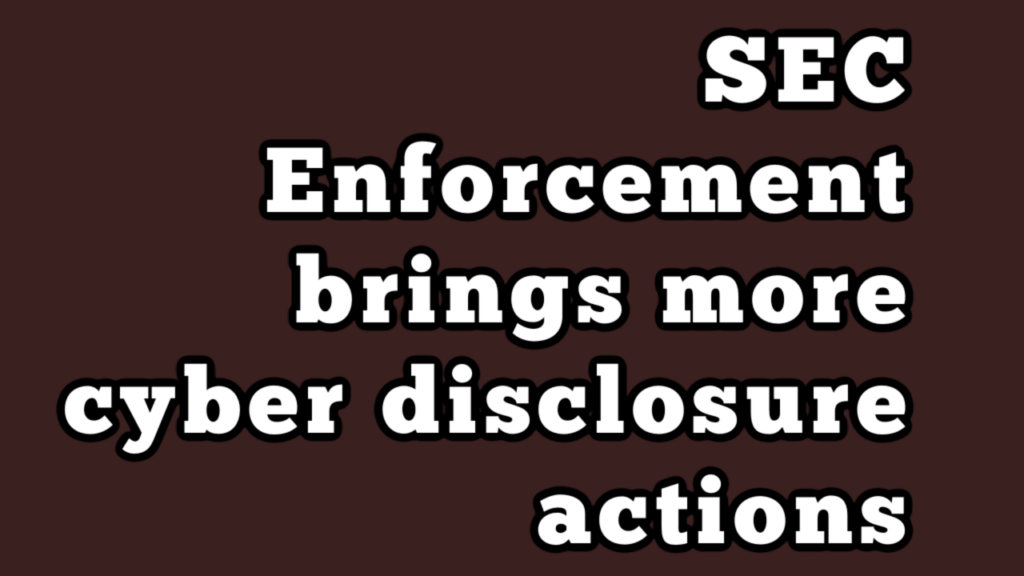SEC Enforcement brings more cyber disclosure actions

Here’s the intro from this blog by Cooley’s Cydney Posner:
On Tuesday, the SEC announced settled charges against four companies for “making materially misleading disclosures regarding cybersecurity risks and intrusions. The charges against the companies, Unisys Corp., Avaya Holdings Corp., Check Point Software Technologies Ltd and Mimecast Limited, all resulted from an investigation of companies “potentially impacted by the compromise of SolarWinds’ Orion software and by other related activity.” (See this PubCo post and this PubCo post.) According to law.com, the SEC “began issuing sweep letters to potential SolarWinds hack victims back in 2021.”
The SEC charged that each of these companies learned that the “threat actor” that was probably the cause of the SolarWinds hack had “accessed their systems without authorization, but each negligently minimized its cybersecurity incident in its public disclosures.” In two instances, the companies were alleged to have framed their disclosures as hypothetical or generic risks. Unisys was also charged with a disclosure controls violation. According to Sanjay Wadhwa, Acting Director of the SEC’s Division of Enforcement, “[a]s today’s enforcement actions reflect, while public companies may become targets of cyberattacks, it is incumbent upon them to not further victimize their shareholders or other members of the investing public by providing misleading disclosures about the cybersecurity incidents they have encountered….Here, the SEC’s orders find that these companies provided misleading disclosures about the incidents at issue, leaving investors in the dark about the true scope of the incidents.”
Jorge G. Tenreiro, Acting Chief of the Crypto Assets and Cyber Unit, cautioned that “[d]ownplaying the extent of a material cybersecurity breach is a bad strategy….In two of these cases, the relevant cybersecurity risk factors were framed hypothetically or generically when the companies knew the warned of risks had already materialized. The federal securities laws prohibit half-truths, and there is no exception for statements in risk-factor disclosures.” The companies were each charged with violations of the Securities Act, the Exchange Act and related rules, and agreed to pay civil penalties ranging from $990,000 (Mimecast) to $4 million (Unisys). Commissioners Hester Peirce and Mark Uyeda dissented, contending that the SEC “needs to start treating companies subject to cyberattacks as victims of a crime, rather than perpetrators of one.”
